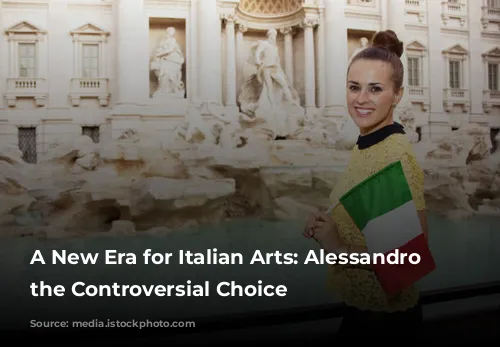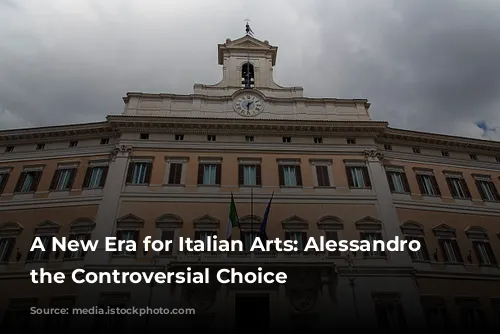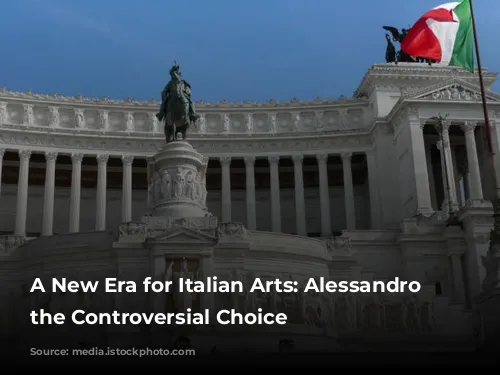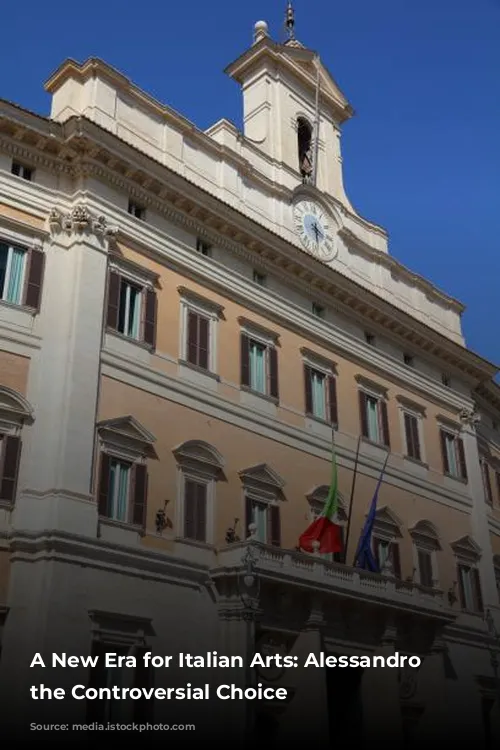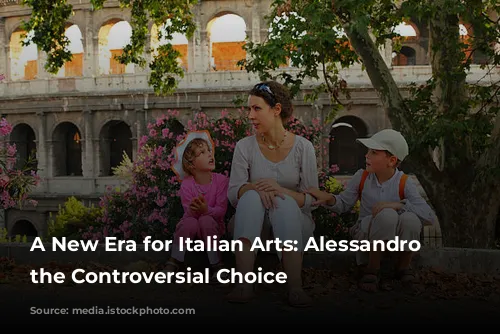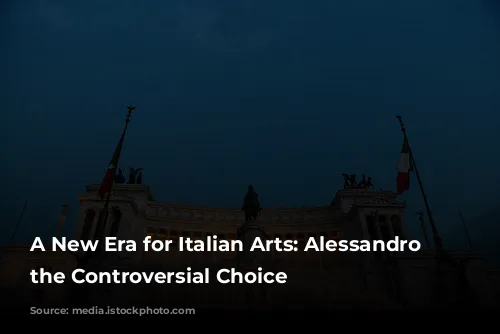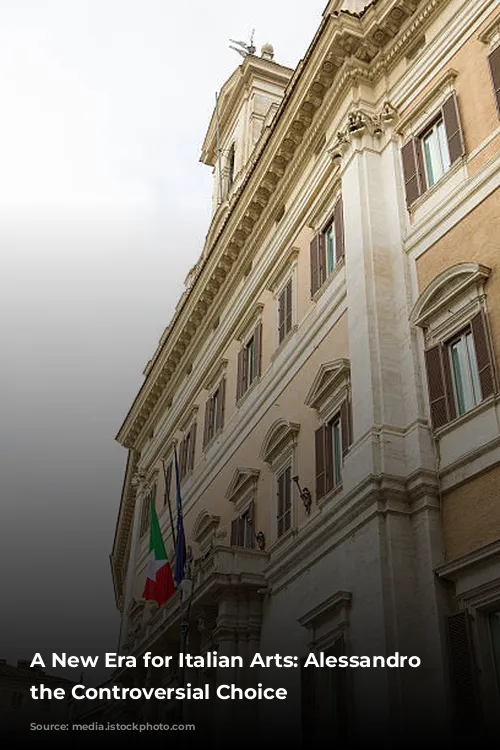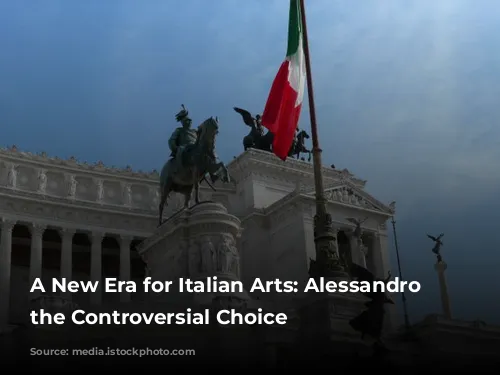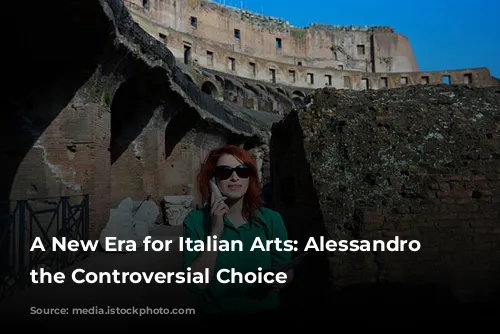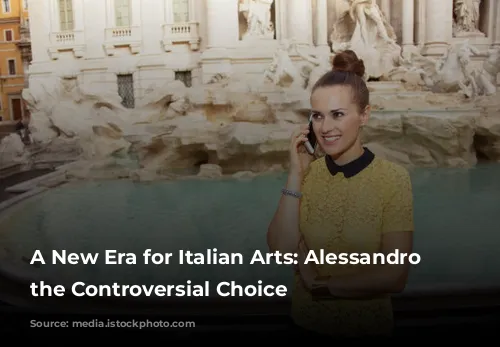The Italian cultural landscape is undergoing a significant transformation, marked by the rise of right-wing figures. Alessandro Giuli, a controversial figure with a history in right-wing media and politics, has been appointed as the new Minister of Culture. This appointment follows the resignation of his predecessor, Gennaro Sangiuliano, who faced widespread criticism for allegedly appointing his former lover as an advisor.
Giuli, a long-time friend and ally of Prime Minister Giorgia Meloni, has been lauded by the government as a key figure in the effort to “revive national culture” and break with the “past.” This “past” likely refers to the perceived dominance of left-leaning ideas within the arts, a sentiment echoed by Meloni and her far-right Fratelli d’Italia party.
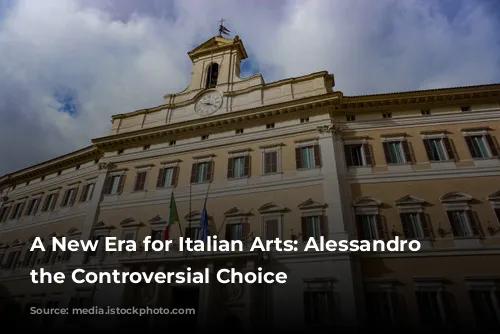
From TV Personality to Minister: Giuli’s Rise to Power
Giuli’s journey to the top of Italy’s cultural scene has been anything but traditional. While lacking formal experience in museum management, he gained prominence as a TV personality, author, and journalist for right-wing publications. His appointment as president of the Maxxi foundation in 2022, under Sangiuliano’s leadership, was met with some skepticism. However, his close ties to the ruling party ultimately paved the way for his rise to a powerful position.
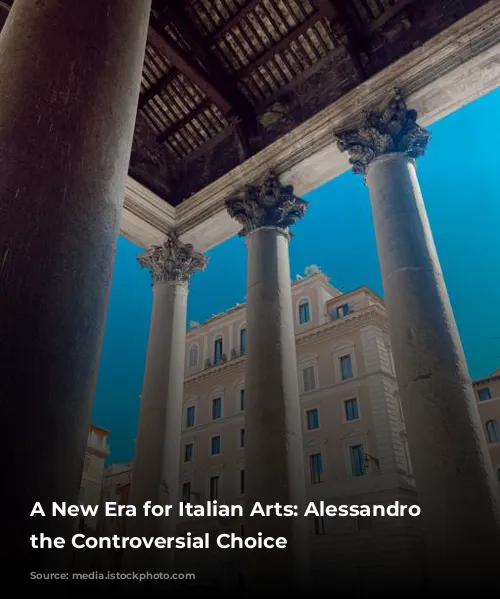
Controversy and Sexist Remarks: A Stain on Giuli’s Record
Giuli’s tenure at the Maxxi was marred by a series of controversies. A notable incident involved his presence on a panel with Italy’s then-undersecretary for culture, Vittorio Sgarbi, who made crudely sexist remarks about women. Giuli’s failure to interrupt Sgarbi’s offensive comments drew criticism from the Italian public, forcing him to apologize for not taking action. His explanation, claiming he wanted to avoid “risking an incident,” failed to appease many, adding to the public’s perception of his lack of judgment.
Sgarbi, who eventually resigned after being accused of possessing a stolen painting, further highlights the questionable choices surrounding the new government’s approach to cultural leadership. The incident also raises concerns about Giuli’s ability to promote a respectful and inclusive environment within the arts.
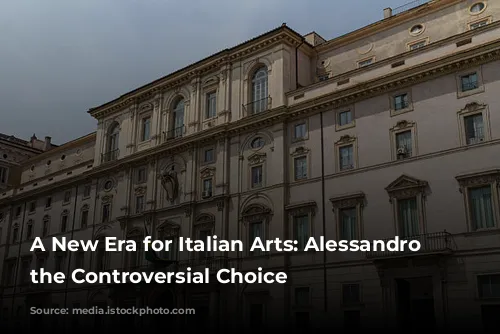
Giuli’s Past: Ties to Neo-Fascism and a Controversial Legacy
Giuli’s past is as controversial as his present. Born in Rome in 1975, he was a member of the neo-fascist group Meridiano Zero and the Youth Front, an arm of the defunct neo-fascist Italian Social Movement. This history echoes that of Pietroangelo Buttafuoco, another right-wing figure who served as a member of the Italian Social Movement and now holds a prominent position as president of the Venice Biennale.
While Giuli’s past ties to neo-fascist organizations raise concerns about his commitment to promoting a diverse and inclusive cultural environment, the government appears undeterred. The close friendship between Giuli and Buttafuoco, both of whom have ascended to influential positions within the Italian cultural landscape, speaks volumes about the direction in which the country’s arts scene is heading.
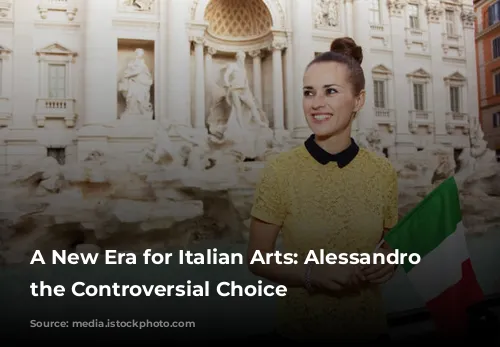
Sangiuliano’s Downfall: A Love Affair and Media Scrutiny
Sangiuliano’s abrupt resignation was triggered by a scandal involving the alleged appointment of his ex-lover, Maria Rosaria Boccia, as an advisor. Boccia’s public announcement of her new role on LinkedIn sparked a media firestorm, forcing Sangiuliano to admit to his actions and apologize to his wife. The media frenzy focused on questions of potential misuse of public funds and whether Boccia had access to classified information.
Sangiuliano’s scandal underscores the high stakes involved in navigating Italy’s politically charged cultural scene. The media scrutiny he faced highlights the public’s sensitivity to issues of ethics and accountability within the government.
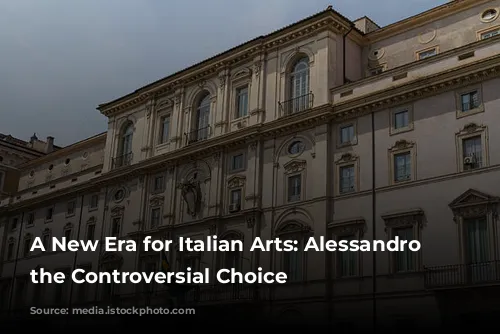
Meloni’s Agenda: Using Art to Promote Far-Right Values
Prime Minister Meloni’s appointment of Giuli to the Ministry of Culture is not simply a matter of personnel changes; it reflects her broader agenda to reshape the Italian arts scene in the image of her far-right ideology. Meloni’s inauguration of a state-sponsored exhibition celebrating the works of J.R.R. Tolkien, author of The Lord of the Rings, is seen by some as an attempt to promote conservative values through popular culture. However, it’s important to note that Tolkien himself rejected extremism and his works are often interpreted in various ways.
The appointment of Giuli and the focus on figures like Tolkien suggest that Meloni intends to use the cultural sphere as a platform to advance her political goals. The implications of this shift for the future of Italian arts remain to be seen, but it is clear that a significant ideological battle is being waged within the nation’s cultural institutions.
